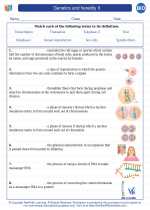Introduction to Quantum Mechanics
Quantum mechanics is a fundamental theory in physics that describes the behavior of matter and energy at the atomic and subatomic levels. It provides a mathematical framework for understanding the wave-particle duality of particles, the uncertainty principle, and the quantization of physical properties.
Key Concepts in Quantum Mechanics
Wave-Particle Duality
The concept that particles such as electrons and photons exhibit both wave-like and particle-like properties. This is described by the wave function, which represents the probability amplitude of finding a particle at a given position and time.
Quantization
Quantization refers to the discrete nature of certain physical properties at the quantum level. For example, the energy levels of electrons in an atom are quantized, meaning they can only exist at specific discrete energy levels.
Uncertainty Principle
Proposed by Werner Heisenberg, the uncertainty principle states that it is impossible to simultaneously know both the precise position and momentum of a particle. This principle has profound implications for our understanding of the behavior of particles at the quantum level.
Wave Function and Probability
The wave function of a particle represents the probability amplitude of finding the particle in a particular state. The square of the wave function gives the probability density of finding the particle at a specific location.
Applications of Quantum Mechanics
Quantum Computing
Quantum mechanics has led to the development of quantum computers, which utilize quantum bits (qubits) to perform computations at speeds unattainable by classical computers for certain types of problems.
Quantum Cryptography
Quantum mechanics has also paved the way for quantum cryptography, a method of secure communication based on the principles of quantum mechanics, offering theoretically unbreakable encryption schemes.
Quantum Tunneling
Quantum tunneling is a quantum mechanical phenomenon where a particle can pass through a potential barrier that would be classically insurmountable. This has applications in electronics, microscopy, and other fields.
Further Study Resources
- Read "Principles of Quantum Mechanics" by R. Shankar for an in-depth understanding of the subject.
- Explore online courses and lectures on platforms like Coursera and edX to deepen your knowledge of quantum mechanics.
- Engage in discussions and problem-solving sessions with peers or mentors to solidify your understanding of quantum mechanics concepts.
- Seek out research opportunities or internships in quantum mechanics to gain practical experience in the field.
◂Biology Worksheets and Study Guides High School. Genetics and heredity II
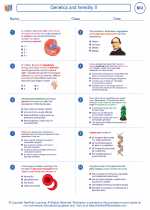
 Worksheet/Answer key
Worksheet/Answer key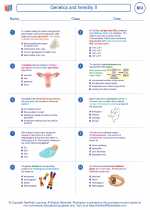
 Worksheet/Answer key
Worksheet/Answer key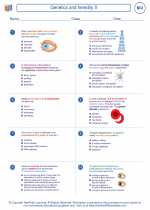
 Vocabulary/Answer key
Vocabulary/Answer key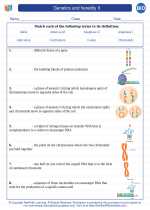
 Vocabulary/Answer key
Vocabulary/Answer key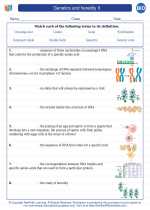
 Vocabulary/Answer key
Vocabulary/Answer key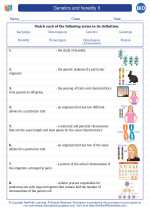
 Vocabulary/Answer key
Vocabulary/Answer key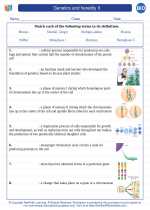
 Vocabulary/Answer key
Vocabulary/Answer key
 Vocabulary/Answer key
Vocabulary/Answer key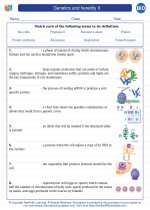
 Vocabulary/Answer key
Vocabulary/Answer key